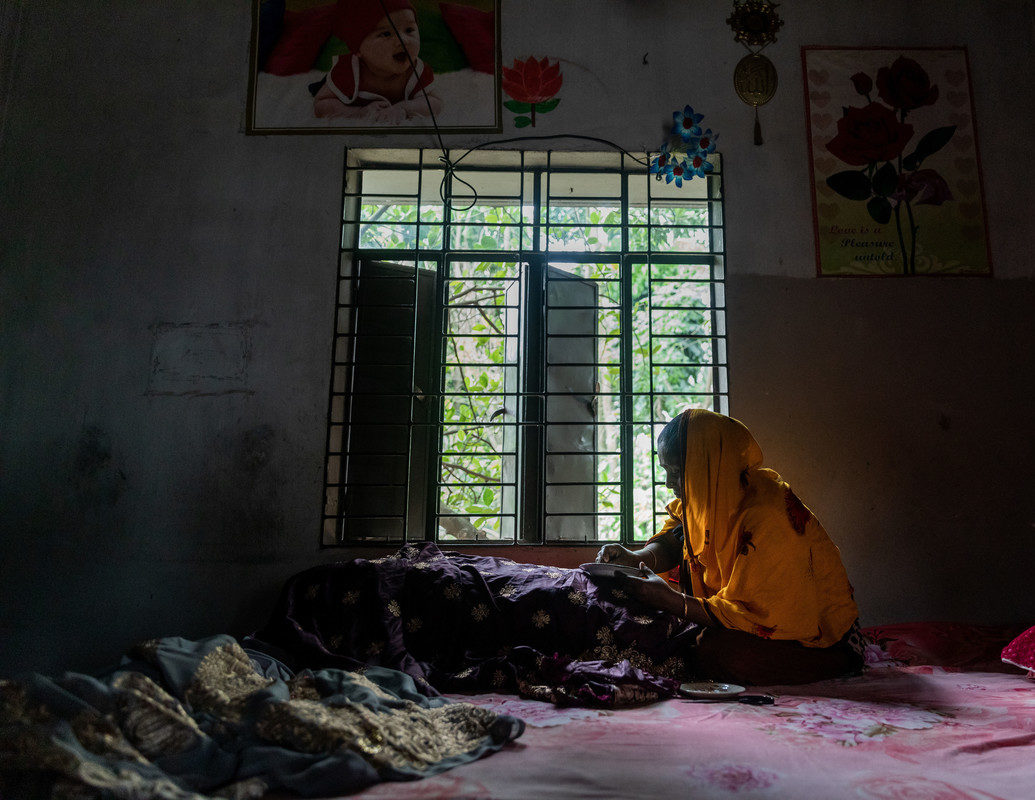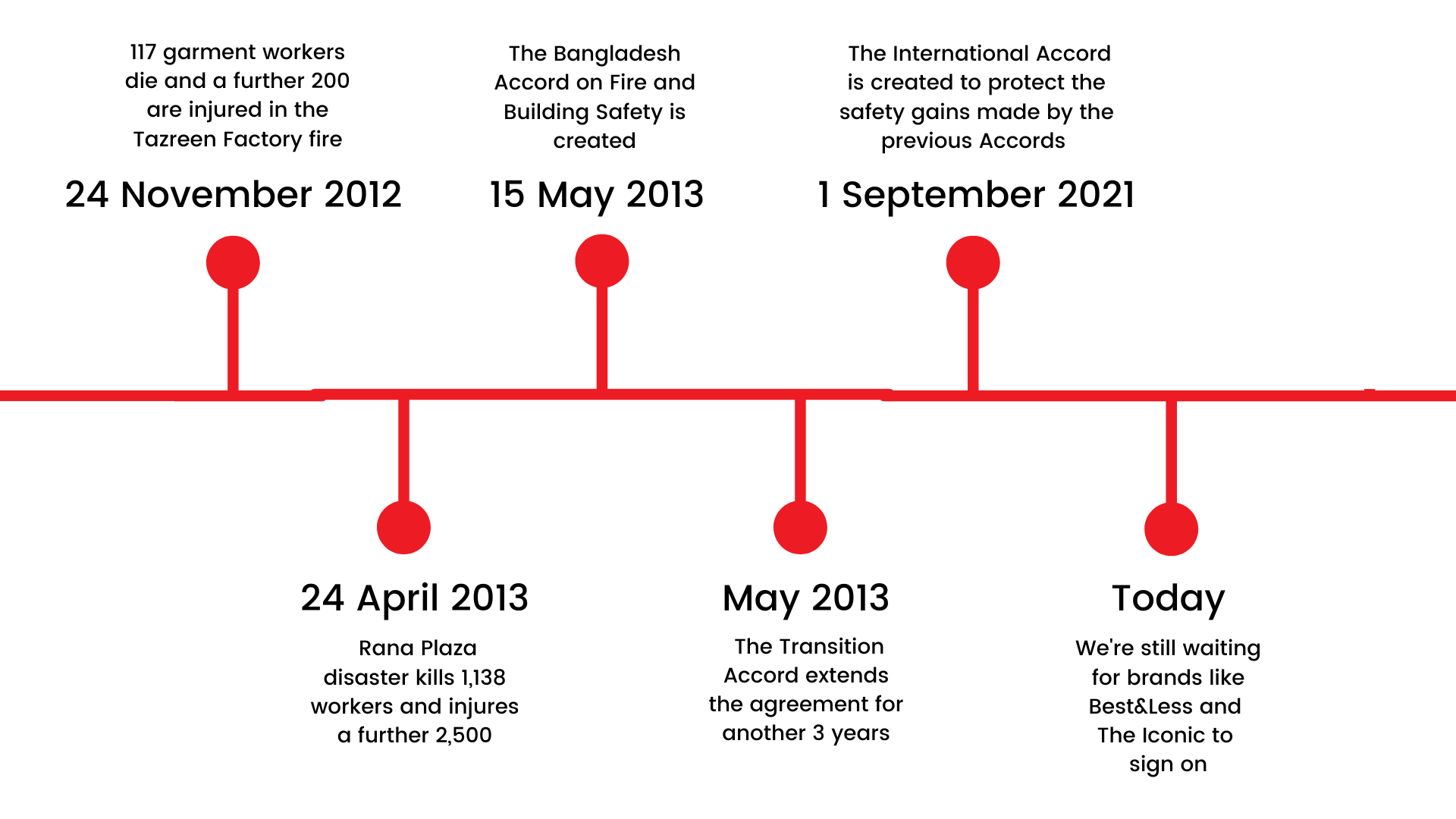For its first anniversary, we are celebrating the Accord’s life-saving impact, and calling on the Australian brands to urgently sign on.
What is the International Accord?
The International Accord for Health and Safety in the Textile and Garment Industry is a legal safety agreement that makes garment factories safer for the women who make our clothes.
The International Accord was established on 1st September 2021 after the original Bangladesh Accord expired. The Bangladesh Accord was created in response to the tragic Rana Plaza disaster.

Jakia, a survivor of Rana Plaza
What happened at Rana Plaza?
Fire and building safety disasters have killed thousands of garment factory workers. The worst disaster in history occurred in 2013 at the Rana Plaza factory in Dhaka, Bangladesh. When the factory building collapsed, 1,138 workers died and a further 2,500 were injured. Most of the victims and survivors were women.
After long-term campaigning by labour rights advocates and workers, the tragedy of the Rana Plaza disaster provided a critical turning point for regulation of garment factory safety standards.
The Bangladesh Accord was an agreement between brands and trade unions to work towards a safe and healthy garment and textile industry in Bangladesh. It catalysed a new approach to building safety across the industry, placing legally binding obligations on international brands and factories to protect worker safety.
The International Accord for Health and Safety in the Textile and Garment Industry commenced on 1 September 2021 and is the successor agreement to the Bangladesh Accord.

The impact of the International Accord
The International Accord works by conducting independent fire, electrical, and structural inspections and makes reports and time-bound corrective action plans available to the public. Brands that sign the Accord are obligated to sever ties with any factories that refuse to make the necessary repairs and renovations to the buildings.
The International Accord also protects worker safety through:
- A complaint mechanism through which workers can anonymously report potential violations at their factory to the Accord
- Independent oversight of brand compliance
- Obligation to pay prices to suppliers sufficient to support safe workplaces.
According to the Worker Rights Consortium., the Accords have undoubtedly saved hundreds of lives.
“Safety renovations generated by the Accord across 1,600 factories have made conditions safer for more than two million workers”, said Scott Nova, Executive Director of the Worker Rights Consortium.
“The Accord’s inspections have uncovered close to 130,000 safety violations, ranging from structural damage to unsafe fire escape routes. To date, the vast majority of these safety hazards have been eliminated.”
Which brands haven’t signed?
We applaud the more than 170 international and Australian brands that have signed onto the International Accord. These brands are putting people before profit and protecting the health and safety of the women who make their clothes.
However, two Australian brands are still ignoring the call to protect the lives of their workers: Best&Less and The Iconic.
Despite continued calls to sign onto the International Accord, both Best&Less and The Iconic have refused to step up for its garment workers and sign the agreement.
Today, on the first anniversary of the International Accord, you can take action by emailing the CEO of The Iconic, and urge them to sign the Accord!